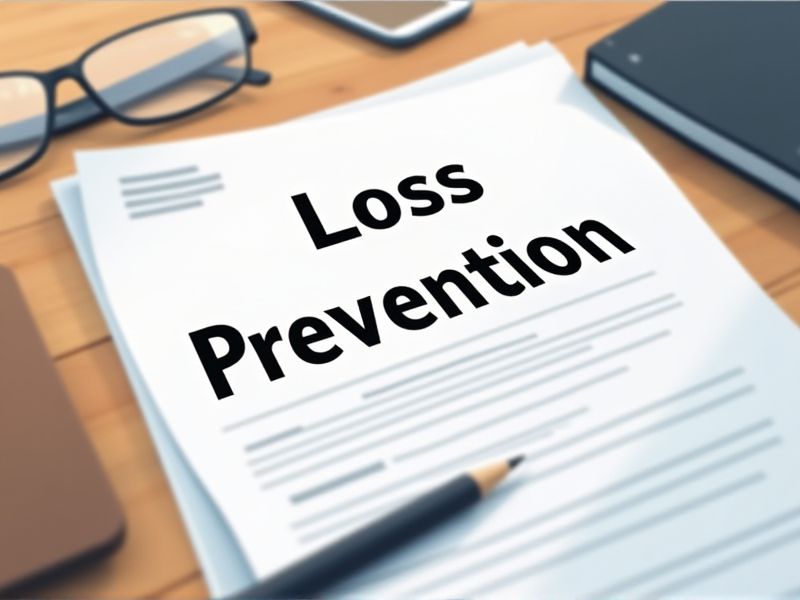
A Loss Prevention Manager plays a crucial role in reducing company losses and maintaining the integrity of assets. Obtaining certain certifications equips them with specialized knowledge in risk management, theft prevention, and security protocols. These certifications not only enhance their skills but also increase their credibility and effectiveness in implementing preventative strategies. Here are some essential certifications you may need as a Loss Prevention Manager.
Certified Protection Professional (CPP)
Loss Prevention Managers oversee and minimize financial losses due to theft, fraud, and waste; having a Certified Protection Professional (CPP) validates their expertise in security management. The CPP designation enhances their skills in identifying potential threats and vulnerabilities, translating into more effective risk mitigation strategies. Companies favor professionals with a CPP due to their proven capability in crisis response and asset protection. The certification often results in better job prospects and increased trust from employers and stakeholders.
Professional Certified Investigator (PCI)
A Professional Certified Investigator (PCI) helps a Loss Prevention Manager effectively identify and analyze security threats using advanced investigative techniques. This specialized certification equips the manager with comprehensive knowledge of legal standards and ethical practices in loss prevention. It enhances their ability to formulate strategic decisions that mitigate financial losses and protect company assets. Holding a PCI credential increases credibility and trust within the organization and among external stakeholders.
Certified Fraud Examiner (CFE)
A Loss Prevention Manager focuses on safeguarding a company's physical and financial assets, which necessitates expertise in identifying and mitigating fraudulent activities; the CFE certification equips them with specialized skills in fraud detection and deterrence. Fraudulent activities can lead to significant financial losses for companies, and having a CFE ensures a proactive approach in identifying these vulnerabilities. A CFE has a deep understanding of the legal aspects of fraud, enabling the Loss Prevention Manager to navigate and address incidents that might otherwise go unnoticed or unresolved. Moreover, the analytical techniques taught in CFE training improve the ability to investigate suspicious activities, offering a more comprehensive loss prevention strategy.
National Retail Federation Loss Prevention Certification (NRF-LPC)
The NRF-LPC certification equips Loss Prevention Managers with the knowledge and skills necessary to effectively safeguard assets and reduce theft, which results in minimized inventory shrinkage and higher profitability for retailers. This certification enhances credibility in the industry, making certified professionals more attractive to employers who value verified expertise. By following the established standards, Loss Prevention Managers with NRF-LPC can implement enhanced strategies, leading to improved safety and security within retail environments. Access to a network of certified professionals allows for the sharing of best practices, which can further refine loss prevention tactics and techniques.
Certified Asset Protection Specialist (CAPS)
Loss Prevention Managers face increasing complexities in safeguarding company assets, making Certified Asset Protection Specialist (CAPS) essential for enhancing skillsets. This certification enriches knowledge on advanced strategies, which directly contributes to minimizing financial losses. CAPS training provides expertise in risk assessment and incident response, crucial components for maintaining organizational integrity. By attaining CAPS, Loss Prevention Managers increase their credibility and demonstrate a commitment to proactive asset protection.
Certified Safety Professional (CSP)
A Certified Safety Professional (CSP) designation enhances a Loss Prevention Manager's competencies by providing verified knowledge and skills in safety management, reducing workplace incidents. Having a CSP boosts credibility and trust from both employers and employees, fostering a safer work environment. The specialized training involved in attaining CSP status equips managers with the ability to anticipate, identify, and mitigate potential hazards effectively. Companies often prefer hiring CSP-certified individuals because they are likely to drive compliance with safety regulations, thereby decreasing liability and financial losses due to workplace accidents.
OSHA 30-Hour Certification
Loss Prevention Managers obtain OSHA 30-Hour Certification to enhance workplace safety standards, which directly reduces the likelihood of employee injuries and financial losses. Familiarity with OSHA regulations enables them to identify and mitigate potential hazards effectively, promoting a secure working environment. This certification fosters a safety-first culture, increasing employee confidence and boosting overall productivity. By demonstrating a commitment to safety compliance, companies mitigate legal risks associated with workplace accidents.
Accredited Retail Loss Prevention Specialist (ARLPS)
The presence of an Accredited Retail Loss Prevention Specialist (ARLPS) can lead to reduced shrinkage rates in retail environments, as they implement effective loss prevention strategies. Their specialized training helps Loss Prevention Managers to refine security measures, which can decrease instances of theft and fraud. By analyzing loss trends, ARLPS professionals provide valuable insights that can improve asset protection protocols. This expertise helps ensure the company's profitability by safeguarding inventory and reducing financial losses.
Certified Security Consultant (CSC)
A Certified Security Consultant (CSC) is needed for a Loss Prevention Manager to enhance strategic security planning, leveraging expert knowledge in risk assessment and mitigation. CSCs bring specialized skills that help identify potential vulnerabilities and implementation of effective security protocols, reducing instances of theft and fraud. Their expertise in regulatory compliance ensures that security measures align with legal standards, minimizing risks of violations. Having a CSC involved strengthens the overall security framework, providing the Loss Prevention Manager with actionable insights and practical solutions.
Certified Emergency Manager (CEM)
Certified Emergency Managers have specialized expertise in risk assessment, enabling Loss Prevention Managers to predict and mitigate potential threats effectively. This certification provides advanced crisis management skills, which can enhance a company's resilience during emergencies. CEM training emphasizes strategic communication, crucial for coordinating response efforts and maintaining safety protocols. By obtaining CEM credentials, a Loss Prevention Manager gains recognition for their commitment to comprehensive safety planning and emergency readiness.
Summary
When you, as a loss prevention manager, obtain certifications, your expertise in risk management significantly enhances. The new skills you acquire can lead to improved security protocols and reduced incidents of theft. These certifications can make you a more attractive candidate for promotions or advancements in your career. Employers may also appreciate your certified status, potentially leading to increased trust and responsibility within your role.
